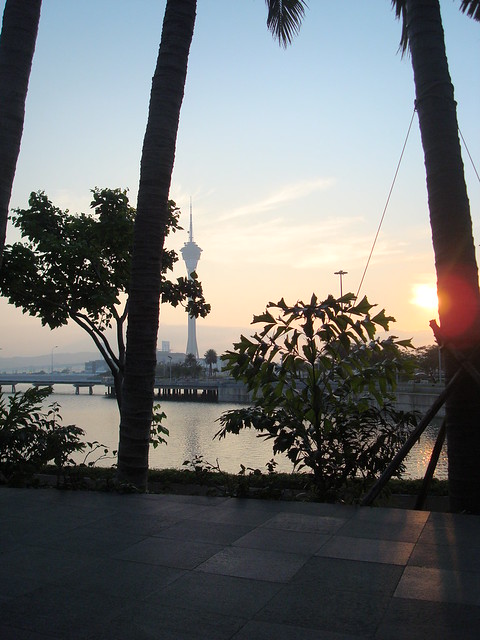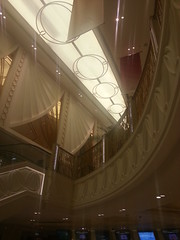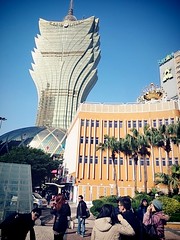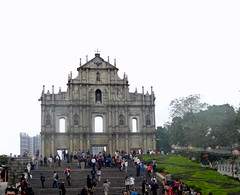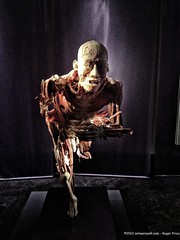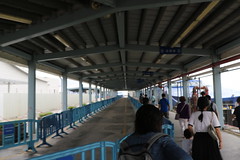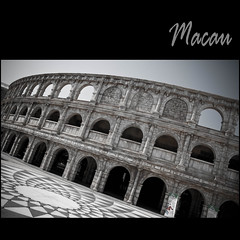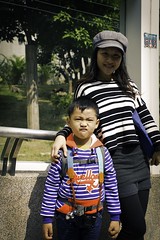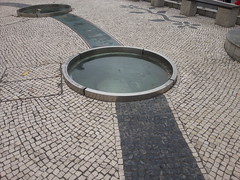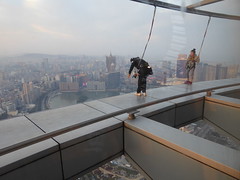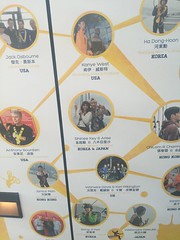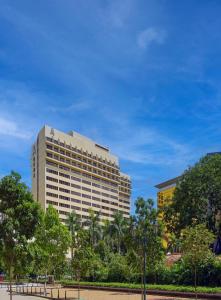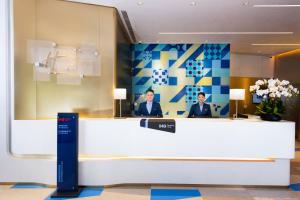Macao
Macau or Macao (English: /məˈk/; Portuguese: [mɐˈkaw];), officially the Macao Special Administrative Region of the People's Republic of China (MSAR), is a city and special administrative region of China in the western Pearl River Delta by the South China Sea. With a population of about 680,000 and an area of , it is the most densely populated region in the world.
Formerly a Portuguese colony, the territory of Portuguese Macau was first leased to Portugal as a trading post by the Ming dynasty in 1557. Portugal paid an annual rent and administered the territory under Chinese sovereignty until 1887. Portugal later gained perpetual colonial rights in the Sino-Portuguese Treaty of Peking. The colony remained under Portuguese rule until 1999, when it was transferred to China. Macau is a special administrative region of China, which maintains separate governing and economic systems from those of mainland China under the principle of "one country, two systems". The unique blend of Portuguese and Chinese architecture in the city's historic centre led to its inscription on the UNESCO World Heritage List in 2005.
Originally a sparsely populated collection of coastal islands, Macau, often referred to as the "Las Vegas of the East", has become a major resort city and a top destination for gambling tourism, with a gambling industry seven times larger than that of Las Vegas. The city has one of the highest per capita incomes in the world, US$43,770 in 2021, and its GDP per capita by purchasing power parity is one of the highest in the world. It has a very high Human Development Index, as calculated by the Macau government, and the fourth-highest life expectancy in the world. The territory is highly urbanised; two-thirds of the total land area is built on land reclaimed from the sea.
Etymology
The first known written record of the name "Macau", rendered as "A Ma Gang" , is found in a letter dated 20 November 1555. The local inhabitants believed that the sea goddess Matsu (alternatively called A-Ma) had blessed and protected the harbour and called the waters around A-Ma Temple using her name. When Portuguese explorers first arrived in the area and asked for the place name, the locals thought they were asking about the temple and told them it was "Ma Kok" . The earliest Portuguese spelling for this was Amaquão. Multiple variations were used until Amacão / Amacao and Macão / Macao became common during the 17th century. The 1911 reform of Portuguese orthography standardised the spelling Macau; however, the use of Macao persisted in English and other European languages.
The Macau Peninsula had many names in Chinese, including Jing'ao , Haojing , and Haojing'ao . The islands Taipa, Coloane, and Hengqin were collectively called Shizimen . These names would later become Aomen , Oumún in Cantonese and translating as "bay gate" or "port gate", to refer to the whole territory.
History
During the Qin dynasty (221–206 BC), the region was under the jurisdiction of Panyu County, Nanhai Prefecture of the province of Guangdong. The region is first known to have been settled during the Han dynasty. It was administratively part of Dongguan Prefecture in the Jin dynasty (266–420 AD), and alternated under the control of Nanhai and Dongguan in later dynasties. In 1152, during the Song dynasty (960–1279 AD), it was under the jurisdiction of the new Xiangshan County. In 1277, approximately 50,000 refugees fleeing the Mongol conquest of China settled in the coastal area.
Macau did not develop as a major settlement until the Portuguese arrived in the 16th century. The first European visitor to reach China by sea was the explorer Jorge Álvares, who arrived in 1513. Merchants first established a trading post in Hong Kong waters at Tamão (present-day Tuen Mun), beginning regular trade with nearby settlements in southern China. Military clashes between the Ming and Portuguese navies followed the expulsion of the Tamão traders in 1521. Despite the trade ban, Portuguese merchants continued to attempt to settle on other parts of the Pearl River estuary, finally settling on Macau. In their first attempts at obtaining trading posts by force, the Portuguese were defeated by the Ming Chinese at the Battle of Tunmen in Tamão (or Tuen Mun) in 1521, where the Portuguese lost two ships; the Battle of Sincouwaan in Lantau Island where the Portuguese also lost two ships; in Shuangyu in 1548, where several Portuguese were captured; and near the Dongshan Peninsula in 1549, where two Portuguese junks and Galeote Pereira were captured. During these battles the Ming Chinese captured weapons from the defeated Portuguese which they then reverse engineered and mass-produced in China such as matchlock musket arquebuses which they named bird guns and Breech loading swivel guns which they named as Folangji (Frankish) cannon because the Portuguese were known to the Chinese under the name of Franks at this time. The Portuguese later returned to China peacefully and presented themselves under the name Portuguese instead of Franks in the Luso-Chinese agreement (1554) and rented Macau as a trading post from China by paying annual lease of hundreds of silver taels to Ming China. Luso-Canton trade relations were formally reestablished in 1554 and Portugal soon after acquired a permanent lease for Macau in 1557, agreeing to pay 500 taels of silver as annual land rent.
The initially small population of Portuguese merchants rapidly became a growing city. The Roman Catholic Diocese of Macau was created in 1576, and by 1583, the Senate had been established to handle municipal affairs for the growing settlement. Macau was at the peak of its prosperity as a major entrepôt during the late 16th century, providing a crucial connection in exporting Chinese silk to Japan during the ''Nanban'' trade period. Although the Portuguese were initially prohibited from fortifying Macau or stockpiling weapons, the Fortaleza do Monte was constructed in response to frequent Dutch naval incursions. The Dutch attempted to take the city in the 1622 Battle of Macau, but were repelled successfully by the Portuguese. Macau entered a period of decline in the 1640s following a series of catastrophic events for the burgeoning colony: Portuguese access to trade routes was irreparably severed when Japan halted trade in 1639, Portugal revolted against Spain in 1640, and Malacca fell to the Dutch in 1641.
Maritime trade with China was banned in 1644 following the Qing conquest under the Haijin policies and limited only to Macau on a lesser scale while the new dynasty focused on eliminating surviving Ming loyalists. While the Kangxi Emperor lifted the prohibition in 1684, China again restricted trade under the Canton System in 1757. Foreign ships were required to first stop at Macau before further proceeding to Canton. Qing authorities exercised a much greater role in governing the territory during this period; Chinese residents were subject to Qing courts and new construction had to be approved by the resident mandarin beginning in the 1740s. As the opium trade became more lucrative during the 18th century, Macau again became an important stopping point en route to China.
Following the First Opium War and the establishment of Hong Kong, Macau lost its role as a major port. Firecracker and incense production, as well as tea and tobacco processing, were vital industries in the colony during this time. Portugal was able to capitalise on China's postwar weakness and assert its sovereignty; the Governor of Macau began refusing to pay China annual land rent for the colony in the 1840s, and annexed Taipa and Coloane, in 1851 and 1864 respectively. Portugal also occupied nearby Lapa and Montanha, but these would be returned to China by 1887, when perpetual occupation rights over Macau were formalised in the Sino-Portuguese Treaty of Peking. This agreement also prohibited Portugal from ceding Macau without Chinese approval. Despite occasional conflict between Cantonese authorities and the colonial government, Macau's status remained unchanged through the republican revolutions of both Portugal in 1910 and China in 1911. The Kuomintang further affirmed Portuguese jurisdiction in Macau when the Treaty of Peking was renegotiated in 1928.
During the Second World War, the Empire of Japan did not occupy the colony and generally respected Portuguese neutrality in Macau. However, after Japanese troops captured a British cargo ship in Macau waters in 1943, Japan installed a group of government "advisors" as an alternative to military occupation. The territory largely avoided military action during the war except in 1945, when the United States ordered air raids on Macau after learning that the colonial government was preparing to sell aviation fuel to Japan. Portugal was later given over US$20 million in compensation for the damage in 1950.
Refugees from mainland China swelled the population as they fled from the Chinese Civil War. Access to a large workforce enabled Macau's economy to grow as the colony expanded its clothing and textiles manufacturing industry, developed its tourism industry, and legalised casino gaming. However, at the height of the Cultural Revolution, residents dissatisfied with the colonial administration rioted in the 1966 12-3 incident, in which 8 people were killed and over 200 were injured. Portugal lost full control over the colony afterwards, and agreed to cooperate with the Chinese Communist Party in exchange for continued administration of Macau.
Following the 1974 Carnation Revolution, Portugal formally relinquished Macau as an overseas province and acknowledged it as a "Chinese territory under Portuguese administration". After China first concluded arrangements on Hong Kong's future with the United Kingdom, it entered negotiations with Portugal over Macau in 1986. They were concluded with the signing of the 1987 Joint Declaration on the Question of Macau, in which Portugal agreed to transfer t…
Hotels Macao
Looking for places related to Macao?
Those are other destinations to find places related to Macao:
